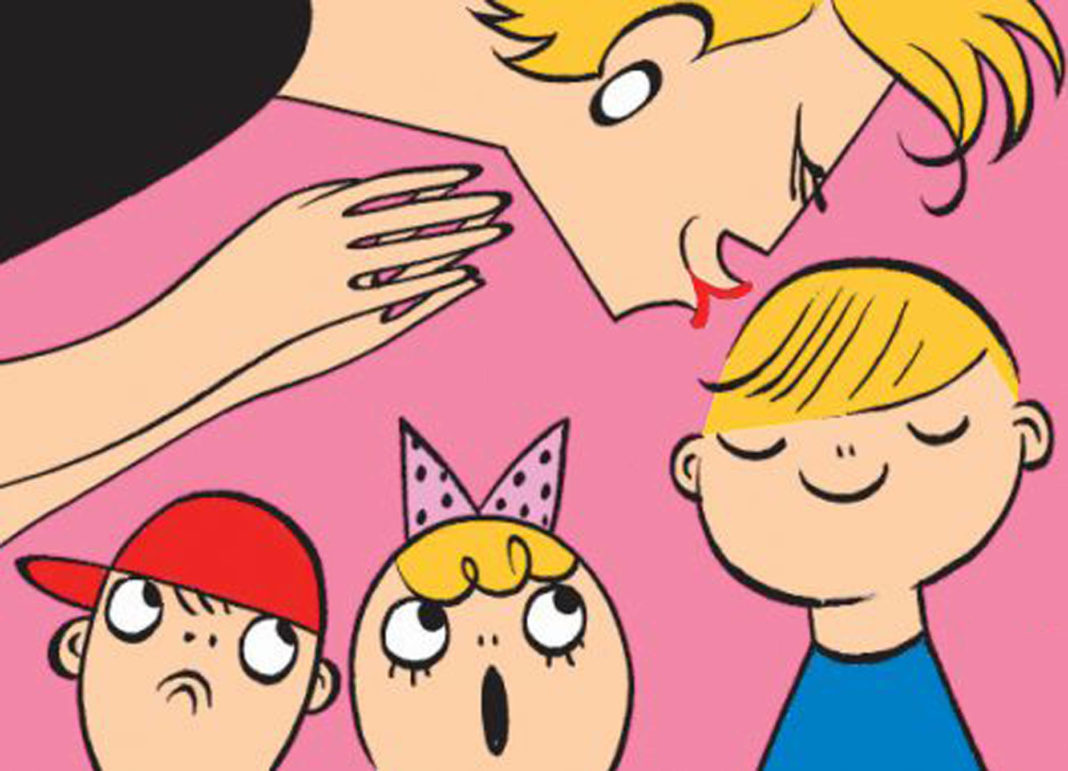
I bet that you claim to be totally opposed to any form of favouritism? Most people will rail against favouritism in the workplace, school, sports-team and in just about every other strand of daily living.
But this in only a facade behind which hides our inability to deal with any group without coming down on the side of choosing a favourite. The favoured one doesn’t necessarily have to be the best at what they do, but you do have your favourite singer, footballer, newsreader, comedian and columnist: Ah gee thanks… Lads! I go to a football match as a neutral, but very quickly attach my favouritism to one team or the other.
One that you won’t like hearing about, but I’m going to tell you anyway, and that is that the majority of you parents have a favourite child.
Teachers have a favourite pupil, a ‘teacher’s pet’ – and when you think about it, how could they not? Team managers will select and give more leeway to their favourite players and when ‘A.N. Other’s’ place needs to be filled, the manager’s favourite will get the nod.
Bosses have their favourite prodigy, who work colleagues can clearly see getting all the breaks and getting away with murder. Promotions will follow, even though others may be better qualified for the job. The leader of the country gives the plum cabinet job to his favourite and the pope turns his favourites into cardinals and saints.
Men, women and ‘don’t knows’ all generally hit on one person for sex and stuff and install them as their favourite person in the entire world. Does all of this not prove that favouritism is the most potent formula for achieving what you want?
‘It’s all down to favouritism’, you will hear someone lament in a derogatory tone. But this should never come as a surprise and that person is absolutely correct. The ‘leg up’ and the ‘dig out’ will always fall to the favourite.
So, let us now take a look at the one that you are in denial over. You all claim to love each of your children equally; and maybe you do, but you still have a favourite child. However, in order to preserve some semblance of peace in Casa Comaskey, I wish to place on record that I don’t have a favourite offspring – as they both wind me up equally.
They say that the first-born has the best chance of being the favourite, but an extensive survey in America proves that a first-born boy is likely to be the mother’s favourite, whilst the youngest girl fills that role for the father. Favouritism in the offspring can fluctuate over the years.
Catherine Conger, a professor of human and community development at the University of California, conducted a study of families over three years and found that 70 per cent of fathers and 65% of mothers exhibit a preference for one child. Most of the other 30 per cent just manage to hide it … like you?
The favoured child recognises their status, but keeps quiet about it: No point in having the other siblings airing their resentment. The ‘unfavoured’ brothers and sisters will ‘cut’ at their parents from time to time over the years, but Mam and Dad will deny it to the death.
Favouritism can boost self esteem and confidence, but can also leave the favoured one arrogant and with a sense of entitlement. The unfavoured children may prove better at forging relationships outside of the family. But there is really no way of knowing for sure how the differential treatment may play out.
Human parents share this leaning towards favouring one offspring over the others with the animal kingdom. A black-eagle will encourage her favoured chic to attack and kill the weaker ones. In the wild, the weaker ones are often only born for insurance, in case something happens to the biggest and best. Mind you, I do believe that humans go the opposite route and will favour and protect the most vulnerable child.
As stated, not all the experts are agreed on just what the impact of favouritism is is on a family. They are all agreed that you are very likely to have a favourite child – and the best advice is to keep the identity to yourself.
In fact, sometimes through guilt, you will show favouritism to the unfavoured by trying to make up for having a favourite that only you know about -if you know what I mean … Unless of course you are sorry you ever had any children at all in the first place! Don’t look at me …!!
Don’t forget
It is incredible to think how little our own parents knew about child psychology and how wonderful we turned out to be!





